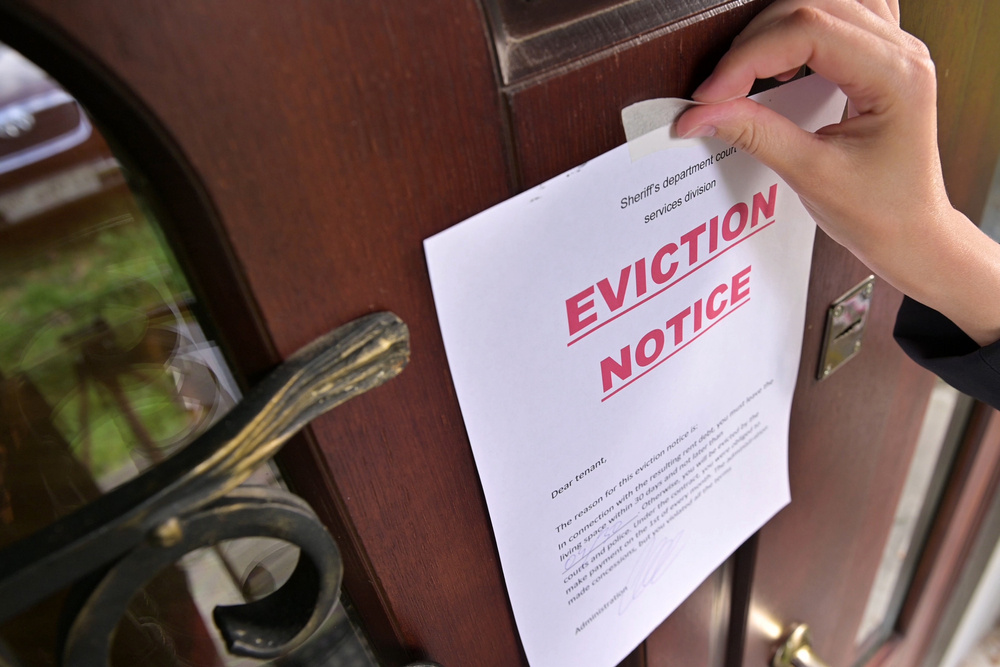A renter’s eviction is a legal proceeding that a property owner must go through to legally remove a renter from a residential rental unit they are currently living in. The permissible reasons for eviction will vary based on the jurisdictional oversight and guidelines, type of property, and pre-determined property requirements that have been outlined in the renter’s lease agreement.
The following narrative offers a general overview of a property manager’s role regarding the eviction of renters in California.
Does a Property Manager Need the Property Owner’s Permission to File an Eviction Notice?
A property management agreement that has been executed by both manager and owner is the legally enforceable and binding document that details the property manager’s responsibilities. The agreement outlines the property owner’s legal authority and the scope of services to be given to the property manager.
Property management agreements may include a provision specifying the property manager’s authority to evict a renter without consulting the owner. However, this provision may be contingent on the location and the owner’s preferences.
What is the Eviction Process?
Before initiating an eviction process as a property manager, it's essential to ensure that a property manager understands the pertinent laws that govern the rental property. The second step to follow in the eviction process is determining the basis for the renter's eviction.
Evictions can happen for many non-compliance reasons. Most are directly related to a breach of the terms of the rental lease agreement such as:
- Rental payments are repeatedly late or in arrears.
- The number of people living in the residential investment unit exceeds allowable limits by state law or the number specified in the lease agreement.
- Running a business from a residential investment property or using it illegally.
- Subleasing the residential investment property without appropriate approval/permission.
- Constant nuisance behaviors disrupt the peaceful tenancy of neighbors.
- Damage to the property.
When planning to file an eviction notice, a property manager must document the lease violations on an ongoing basis. This evidence may be needed for use in a court proceeding, depending on the situation. The following offers a partial list of some ways to document lease violations:
- Copies of late payment notices
- Photographs of the damage caused by the renter
- Printed email and other letters referencing ongoing problems
- Copies of checks returned for insufficient payment
- Written complaints from other renters
The next step is for the property manager to draft an eviction notice that informs the renter(s) why the notice is being sent. There are, in general, three types of eviction notices:
-
A Notice to Cure or Quit informs the renter that there are lease violations that need to be fixed or the renter needs to vacate the property. These are also known as notices for termination with cause.
-
An Unconditional Quit Notice informs the renter that they must vacate the rental unit. This type of eviction notice is generally used for serious lease agreement violations like chronic late rent payments.
-
A Pay Rent or Quit Notice informs the renter that the overdue rent must be brought current, or they need to vacate the property.
Depending on the relevant state laws, the eviction notice may need to include a defined period to remedy the breach of the lease or be forced to leave the rental premises. If the renter fails to fix the violation by the stated deadline, the property manager files an eviction lawsuit (which can be known as an unlawful detainer lawsuit) with the relevant jurisdiction.
Property managers should be aware that it's their responsibility to prove that the renter was provided the appropriate amount of time to respond – and chose not to. This can be done by sending all correspondence by:
- Certified mail w/ a Return Receipt Requested for evidence of the delivery.
- Certification from a process server, if permitted by law.
After the renter files their paperwork regarding the situation a property manager can ask for a trial date. If the renter fails to provide their side of the situation, the property manager can ask for a default judgment, which happens without a trial.
The Take-Away
One of the many property manager responsibilities outlined in a property agreement may include the authority to manage a future eviction proceeding.
Property managers offer a cost-effective way for owners to consolidate management services and responsibilities. A property manager is a great way for property owners to save money and time in the long run.










